To understand why, University of Antwerp, delaware, Flanders' FOOD, and VLAIO initiated a research project to uncover the key challenges holding companies back and provide strategic directions for better results. The findings of this two-year research are presented in a series of reports.
Discover how to boost your Industry 4.0 investments
Companies are investing heavily in Industry 4.0 technologies (such as the Internet of Things (IoT), Artificial Intelligence (AI), and Big Data), expecting transformative results. However, many often experience only slow and gradual improvements and a limited return on investment.
University of Antwerp, delaware, Flanders' FOOD, and VLAIO also developed the first international, scientific Industry 4.0 assessment & benchmarking tool, tailored to the food processing industry. This assessment will help you unveil untapped strategic opportunities.

Contribute to the research and benchmark your company
- Filling out the assessment will take about 30 minutes
- The assessment closes on October 31, 2025
- Results:
When the researchers have processed the data, you will receive a personal report that assesses your current Industry 4.0 adoption, analyzes where your organization stands against international benchmarks as well as your direct competitors, and unveils untapped strategic opportunities for your company.
Developed by
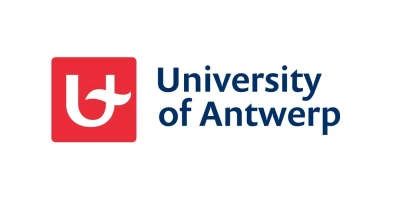


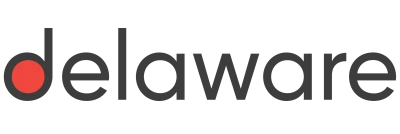
Supported by
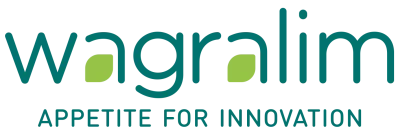
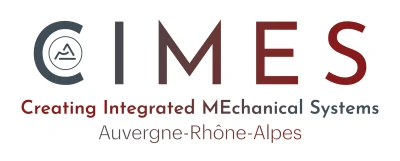
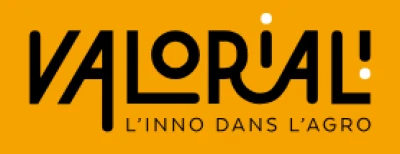


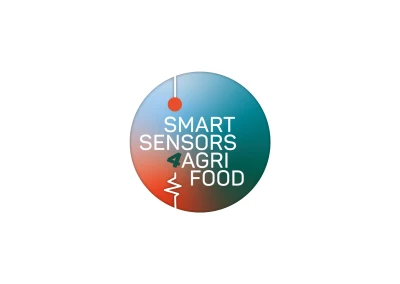
About the reports
This series of reports will identify the three largest barriers preventing companies from making significant improvements despite their investments and explain the 10 paradigm shifts (fundamental changes in thinking and approach) of Industry 4.0.
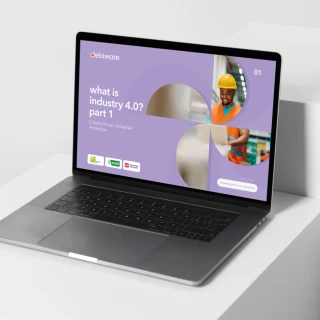
Available in the library
-
The initial definition of Industry 4.0, presented at the Hannover Messe in 2011, focused on technological potential and innovative scenarios. Now, over a decade later, these Industry 4.0 technologies have matured, and many companies have adopted them. However, considering that previous industrial revolutions lasted between 50 and 100 years, it is clear that we are still in the early stages of this revolution. The recent rise of generative AI and its impact on food processing companies shows that Industry 4.0 is still evolving. This transformation suggests that the original definition may no longer capture its full scope.
In this series of reports, we will take you on a journey through Industry 4.0, starting with a look back at the three previous industrial revolutions to predict the future. We identify three essential building blocks required for an industrial revolution and analyze whether these are present in Industry 4.0. -
In Report 1: Industry 4.0 - Part 1: criteria for an industrial revolution, we analyzed the previous three industrial revolutions and identified three criteria for an industrial revolution: technological innovation, a radical transformation in the way of working, and a radical transformation in the way of living. It is clear that we are currently in a new era of technological innovation. However, does Industry 4.0 also meet the other two criteria?
-
In Report 2: Industry 4.0 - part 2: Industrial revolution or evolution?, we established that we have not yet reached the core phase of the Fourth Industrial Revolution. Although the technologies are available, companies often struggle to reap the benefits, leading to a productivity paradox. Why does this happen? And what can companies do to achieve more significant results from their Industry 4.0 investments? In this report, we explain the need for paradigm shifts to overcome this productivity paradox and introduce the 10 paradigm shifts relevant to this Industry 4.0 era.
-
Industry 4.0 is still in its adolescence, yet we are already hearing more and more about Industry 5.0. Is the Fifth Industrial Revolution truly on the horizon? What does Industry 5.0 stand for, and where did it come from?
-
Industry 4.0 allows companies to significantly change decision-making processes in their factories. Unlike Industry 3.0, which depended on centralized and reactive decision-making,
Industry 4.0 introduces a decentralized and proactive approach. But how can this transformation be achieved? This report explores the different maturity levels of the first paradigm shift: decentralized decision-making. -
The Fourth Industrial Revolution is significantly transforming the role of production operators. As a result, the methods used to support and guide them must also evolve. Unlike Industry 3.0, which depended on static work instructions, Industry 4.0 introduces event-driven, context-sensitive, personalized, and interactive support for operators. This report explores these advancements in detail, highlighting their essential role as the second foundational element in the shift toward decentralized decision-making.
-
While Industry 4.0 offers the potential for fully autonomous factories, forward-thinking companies understand that people are still crucial to its success. Instead of replacing workers, new technologies can be used to improve employee well-being and place human expertise at the core of manufacturing. How can this be done? This report explores the second paradigm shift - human-centered manufacturing - and examines four key building blocks that integrate people and technology for smarter, safer, and more resilient operations.
-
Virtual replicas of processes, products, and customers are reshaping how companies innovate, optimize, and plan. Digital twins enable proactive simulations, autonomous R&D, and AI-driven supply chain planning - marking a major shift from reactive operations to intelligent, data-driven decision-making.
-
Industry 4.0 enables food companies to cut energy use, water consumption, and waste through smart data, simulations, and AI-driven planning. As regulations and consumer demands grow, businesses must choose between waiting or proactively leading in sustainable innovation—while also managing the environmental impact of digital technologies.
-
Resilience is becoming a key competitive edge as companies face constant disruptions. By using Industry 4.0 technologies like AI and virtualization, businesses can adapt quickly, support flexible operations, and onboard new workers efficiently - turning uncertainty into opportunity.
-
Consumer demand for tailored products is rising, and Industry 4.0 makes it possible to deliver personalization, such as custom ingredients or packaging, at near mass production costs. Technologies such as flexible manufacturing, system integration, and 3D printing enable efficient small-batch or one-off production, helping companies stay competitive in a diverse market.
-
As societal expectations and regulations evolve, transparency in areas like sustainability, ethics, and traceability is becoming essential for food companies. Leveraging Industry 4.0 technologies, businesses can collect and share detailed operational data to build trust, meet compliance, and gain a competitive edge - especially as generative AI increasingly influences consumer purchasing decisions.
-
As e-commerce and personalization grow, food companies are exploring direct-to-consumer (D2C) models to gain consumer insights and improve product offerings. While this shift offers strategic advantages, it also poses challenges like retailer conflicts, logistics complexity, and the need for new capabilities. Hybrid approaches, such as QR code engagement, offer a practical middle ground.
-
Industry 4.0 enables food companies to move beyond product sales by offering services to suppliers, customers, or peers - such as data insights, IT tools, or energy-sharing platforms -creating new revenue streams and business models.
-
To fully realize the benefits of Industry 4.0, companies must move beyond internal optimization and embrace collaboration across their entire ecosystem. Sharing data with suppliers, customers, and partners enables smarter planning, better personalization, improved sustainability, and innovative business models—but trust and technological maturity remain key barriers. Building these partnerships early is essential for long-term success.
Access the reports
Fill in the form on the left to register for the knowledge library. You'll gain exclusive access to:
- the library with all reports on paradigm shifts in Industry 4.0
- the most important updates directly in your mailbox (don't worry, our communication stops after the results of the assessment)
About the experts

Alexander Naessens
Alexander is a PhD researcher on the topic of Industry 4.0, affiliated with the University of Antwerp - Faculty of Business and Economics. He is a lecturer at the University of Antwerp and a guest lecturer at Antwerp Management School. With over 10 years of experience, Alexander is specialized in Industry 4.0 strategy, roadmap development, and implementation projects at delaware.
/Geert-Scheipers-(3).webp?mode=autocrop&w=320&h=320&attachmenthistoryguid=84fef447-720e-40d0-a36a-3b97a1e29306&v=&focusX=333&focusY=333&c=65c25d1f3ca47258b8a7987082b1584f0e63439a3fdfe741e7fec2207a05a71e)
Geert Scheipers
Geert is a professor at Antwerp Management School, the program director of the Master Class Business Strategy and Leadership, and the Academic Director of the Master Class Management in Healthcare. As Partner at delaware, Geert focuses on strategy and digital transformation projects.

ir. Charlot De Smet
Charlot graduated magna cum laude in 2024 as a Master of Science in Biomedical Engineering (Civil Engineering) from Ghent University. She currently works at delaware as a research associate focusing on Industry 4.0.
/paradigm_shift_manufacturing_logos-banner-landingspage-1600x250-(1).webp?mode=autocrop&w=425&h=170&attachmenthistoryguid=20b404c2-013a-4a2c-87b2-4730deff168a&v=&focusX=1281&focusY=129&c=036c452d3f75d16042e74cf8abc608c12935300550fa055294b97b8530e0079b)

/food_2-banner-3200x500-(1).webp?mode=autocrop&w=320&h=240&attachmenthistoryguid=158b12aa-7760-48a3-b86b-8d795ea02de0&v=&focusX=2578&focusY=223&c=c1683b68312b1ace36c920e84663be4d4fc6483f6922ff5264b9ada8be4545fe)
/AdobeStock_871185375-(1).webp?mode=autocrop&w=320&h=240&attachmenthistoryguid=37c89d31-8712-4b0a-b216-877971e0edd0&v=&c=c83b8091810cf048f5675fb8d32b94abbfe3b84fa50ec898202a6dde149e541b)
